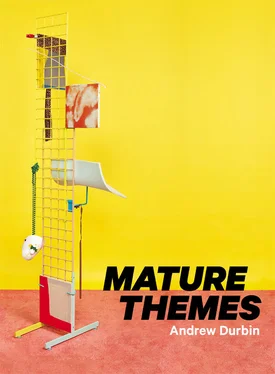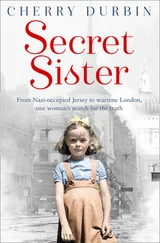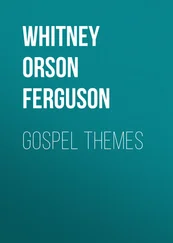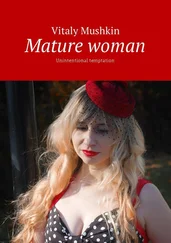3. Marionette carved from the salvaged timber of Hollywood patios and trellises, from memories of Del Monte, from disco ember’s cocaine glow, from shredded Archie comics and fat Elvis funk fantasies: Terius Youngdell Nash knows how to string out an American dream, soul-sadness submerged, but never auto-tuned past auto-wreck, ignition. Rockets rolling somewhere over gravity’s rainbow, because music becomes our only memory when we can’t look back at Mississippi John Hurt’s home in the Delta blues as we contrail above Embarcadero. Whereas Max Martin’s genius is pure pop explosion, here today and gone tomorrow like a coalition of the willing. Funny enough, this entire passage might have been cribbed from a Pitchfork music review, in the guise of a grim-faced hipster homage to American Gothic: stick it to ‘em, etc etc etc. ((“—For all flesh is as grass, and all the glory of man as the flower of grass. The grass withereth, and the flower thereof falleth away… / “—Or I guess the grass is itself a child…))
4. Joke written on the back of an airplane napkin: “—The oldest man with a Bieber tattoo is named Catullus #63, the parable of Attis and Cybele.” Neither smile nor grimace: partial facial paralysis, singing to himself as he looks out the window. The fellow seated next to him’s engrossed in an episode of Saved By the Bell . The tattoo above his own heart reads: Buddy Holly.
— posted 04/08/2013 at 19:50 by >
I am at the Frieze Art Fair
on May 18, 2013, and it’s
raining on the inflatable
Paul McCarthy sculpture
of Jeff Koons’s balloon dog.
I’m looking at a painting
by Monica Majoli,
at complex forms rendered
shadow in the geometry
of available flesh,
dissolution of youth in the dark,
this opening in me like a wound
without recourse to a mend
is totally Frieze.
Frieze is like those jobs
that say you’ll be compensated
commensurate with experience.
How many times have I read that
as “commiserate,” thinking
we might “weigh in”
together to express sympathy
for my having to beg you
to pay me a living wage, itself a term
so vexed in its little assertion
of a metaphysics of cash
it hurls me further
into whatever anally tiny
rabbit hole I’ve already found myself
crawling down, toward
a demon rabbit with a Koch brother’s face.
The number of times reverses me
into ecstasies, crucified on the cross
of precarious employment
but in so less royally
a martyrdom I am rent
anonymous by it.
Frieze is kind of like that,
except it’s about buying art,
which I can’t do.
And writing about it
is much worse,
so I’ve been reading
Bruce Hainley to get away
from “the process” of doing so.
Bruce is the LA-based art critic
and poet who writes
about artists that a lot of us
don’t pay much attention to,
like Lee Lozano. She
was so pissed off
at the art world
she threw it away,
left New York after a dispute
over her rent with her landlord
in a final piece called Dropout .
She more or less spent the rest of her life
living a single, continuous performance
as someone totally outside
of the art world, reclaiming
the space that surrounds it,
redoubled in sequestration
of the suburbs where how many of us originate,
her the suburbs of Texas, me
the suburbs of Florida, Monica Majoli
the generalized suburb of Los Angeles.
I’m reading Bruce’s writing in Pep Talk ,
a small art mag produced somewhere,
I can’t tell where from its website,
but probably LA,
where everything cool
comes from to die back east.
Ben Fama lent it to me
one afternoon after I quoted this from a blogpost of Bruce’s in an email to him: “I like pros, especially when it comes to tennis and rent boys”—and here I’m really wondering if the pun on prose consolidates Bruce’s feeling toward it versus poetry under the sign of sex, which Bruce sometimes pays for, in order to direct us toward the pleasure of its use-function when monetized, a pleasure seldom associated with poetry, and one that might lead to the company of more pros. He continues: “If I can get a twofer, and the trick looks like Rafael Nadal, I’m in heaven.”
I’m in heaven
when I google image search Rafael Nadal
and find him radiating solar joy
on the home page of the New York Times ,
having just advanced in some open
I’ve already forgotten the name of,
proving to us
that the champions
of the world
still wear jockey shorts.
I might collapse in a heap
he’s so hot. Bruce
has been everywhere
in my life recently. Last night,
I went to a party
and ran into Alan Gilbert.
We discussed Bruce’s
really great new piece
on Monica Majoli in Artforum .
Bruce starts with this description
of Michael Jackson, whose death
spiked such an inarticulate
slush of feeling,
of feeling so sick to my
stomach when a friend
called me to tell me the news
while I was walking down Magazine Street
in New Orleans,
I almost threw up
and had to sit down. Bruce writes: “Forgoing outright atrocity, of which there is so much — too much — right now, aren’t the ‘life,’ ‘body,’ and ‘face’ of Michael Jackson in the running for some of the most abstract events of the last century? (I use the tweezers of scare quotes to approach each of those precarious terms because I’m not certain I could handle them at all otherwise.) ‘His’ face and its occlusion, in the final years, when any nose he had was entirely prosthetic (not to mention the permanent eyeliner and chemical bleaching), became a brutal inversion of all the solar joy he beamed as a young performer — that is, when his face appeared at all, since he was prone to wearing what appeared to be a niqab, ‘transgendering’ his complicated presence as much as cloaking it. I’m bringing up Jackson’s ‘desire,’ every bit as abstract as it was intractable, because his ‘desire’ strikes me as even more elusive and imponderable, although many during his lifetime supposed they understood what he repressed or compensated for, even if a fundamental component of whatever his desire might have been remained the sense that he seemed constitutionally uncoupled (and uncouplable).” Wow, right?
Monica’s work is really great.
In particular this crucifixion-like
scene of a BDSM orgy
in which one subject
is hung up on a cross of boys
who pleasure him:
one boy is half burying
his face in Christ’s ass
while another boy has the tip
of Christ’s cock dipped in his mouth.
I guess I like Monica’s painting
for the ecstasy in which Christ finds himself
nailed to a cross by bodies who crave him,
subjugating fear, this physical imposition
of desire that restrains him
and through which he finds himself
desirable. S/M frees you
to a sex without romance,
formats desire on these
interpersonal axes that belie
the fantasy that drives it,
allowing our interactions
to match a preset system
of behaviors we are already aware of
and introducing within its grid
a notational set of inputs
that activate certain desired
outputs. Nothing is veiled
in order to forefront
the point of the act
in the first place,
and from this the world’s
primal motion is set onward—
Читать дальше











